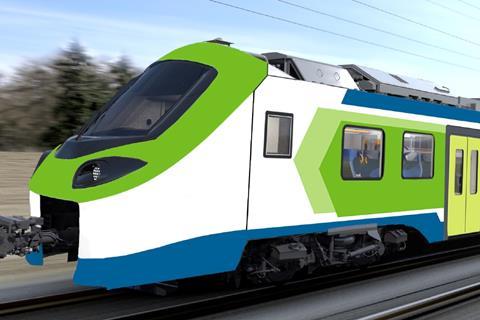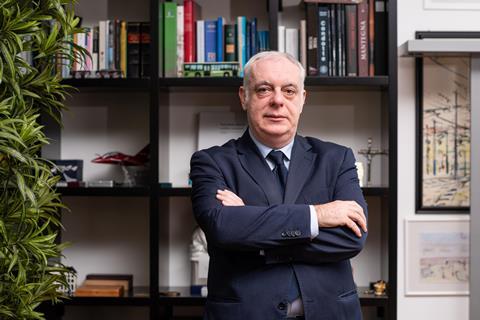
ITALY: Alstom is to supply Ferrovie Nord Milano with six hydrogen fuel cell multiple-units for use by the Lombardia regional operator’s Ferrovienord subsidiary on the non-electrified Brescia – Iseo – Edolo line from 2023.
The agreement announced on November 26 includes an option for eight more trains which would take the total value of the order to €160m.
Intended to replace aging Fiat Aln668 diesel multiple-units which have been in used on the 103 km route since the early 1990s, the FNM hydrogen trains will be based on Alstom’s Coradia Stream family of Italian regional trains. They will use the same fuel cell technology as the Coradia iLint units which have been ordered by two regional authorities in Germany.
Project development, manufacturing and certification will be undertaken at Alstom’s Savigliano site, with on-board signalling systems to be supplied from Bologna.
Alstom said the units would ‘maintain the high standards of comfort already appreciated by passengers’ on Coradia Stream EMUs, which are branded Donizetti by FNM’s Trenord joint venture with Trenitalia, and would match the operational performance of DMUs.
‘We are immensely proud to be introducing hydrogen train technology to Italy’, said Gian Luca Erbacci, Senior Vice-President of Alstom Europe. ‘These trains, together with the Coradia iLint trains that have already proven themselves in commercial service in Germany, represent another major step in the transition towards global sustainable transport systems.’

FNM Group President Andrea Gibelli said the H2iseO project was ‘an important part of a broader strategy’ to develop an integrated portfolio of transport services which are both economically and environmentally sustainable.
FNM plans to build a hydrogen production and fuelling point at its Iseo depot in 2021-23. This would initially use steam methane reforming, but one or two further plants which would produce ‘green hydrogen’ using renewable energy are planned by 2025. The facility could also supply FNMAutoservizi buses and possibly also logistics companies.

















